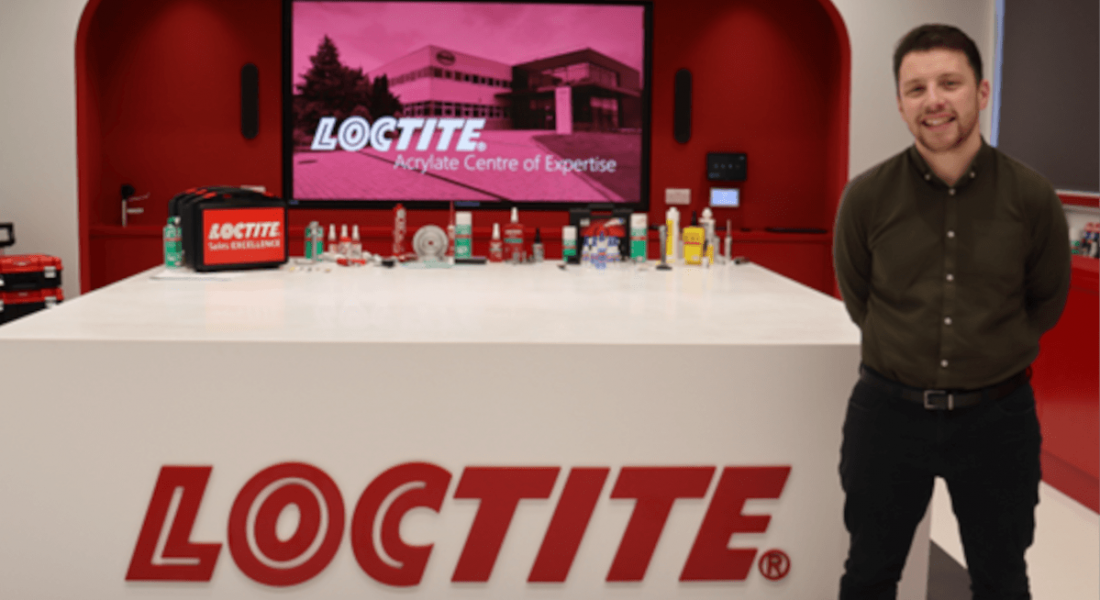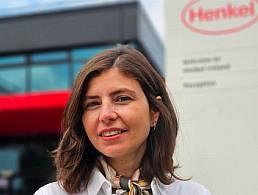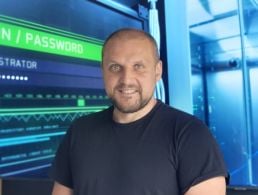Henkel’s Stephen Fearon talks to SiliconRepublic.com about his role as an application engineer and how variety keeps the job interesting.
Stephen Fearon is an application engineer for Henkel Adhesive Technologies. After graduating from Dublin Institute of Technology with a bachelor’s degree in chemistry in 2014, he started working for Henkel’s research and development centre in Tallaght as a product development (PD) intern for machinery adhesive.
While working in this role, Fearon realised that while 50pc of the role was chemistry-based, the other 50pc was based in engineering, and that he needed to “bridge the engineering gap” in his knowledge. As a result, in 2018 Henkel offered to sponsor his master’s in engineering through the Open University.
In 2022, he began his current role in the application engineering team. “I manage, develop and maintain engineering sales tools for our sales force to use in the field, to demonstrate the benefits of our Henkel adhesives and sealants.”
‘There are so many engineering professions and fields out there – try as many as you can to find the one you are most passionate about’
– STEPHEN FEARON
If there is such a thing, can you describe a typical day in the job?
The great thing about my role is it is so varied, it’s very rare that each day is the same. One day I could be presenting to a large group in person or virtually using our new demonstration studio and other days I could be visiting a customer, participating in a group selling activities, traveling to our Innovation Centre in Dusseldorf for training or testing Loctite products against R&D prototypes. In general, I am 80pc based in the R&D facility in Tallaght and work from home for the other 20pc.
What types of engineering project do you work on?
At the moment, my role involves designing new engineering demonstration tools to assist application engineers and the sales force to demonstrate the key benefits of using our adhesives and sealants over conventional methods of joining and sealing. In my previous position as a PD chemist, I loved the varied type of work. 50pc of the time I was based in the lab, while the other 50pc, I was based at my desk, so there is a nice balance of practical and administrative duties.
Having the opportunity to design engineering demonstration tools has helped me retain this balance in my new role. I am also regionally responsible in western Europe for medical adhesive applications- supporting customers who use our medical adhesives in applications such as medical devices.
I am finding this role very exciting. I am being introduced to all different types of adhesive technologies, applications, curing challenges and innovative medical devices.
My inner ‘nerd’ is kept at peace by learning about new applications, technologies and designing new demonstration tools.
What engineering skills do you use on a daily basis?
The main engineering skills I use daily include discussing engineering requirements with our customers directly or on MS teams. I then look for data and information on all the adhesives and sealants we have to offer so I can offer Henkel’s best solution that matches the customer’s criteria. If the data does not exist, I carry out material testing to support our recommendations to the customer. This can be vast in terms of the testing, for example this can include shear tests of the cured adhesive between two substrates, curing (hardening of the adhesive) with UV light and measuring the strength or speed of handling strength or measuring the breakaway torque on a variety of different metals.
Designing demonstration tools in a creative way is another good example of utilising my engineering skills daily.
Other skills I use to support my engineering activities include shooting technical video content live or recorded that can be used during webinars, meetings, customer visits or social media.
What are the hardest parts of engineering, and how do you navigate them?
As I am only new into an engineering type role, I have so much to learn, and to date I have found this to be the biggest hurdle for me to overcome. Luckily, we have plenty of inhouse training material, mentors and very experienced colleagues globally in Henkel. It still requires me to find the right contact people and material, and of course learn the material, but it is possible with these resources and time.
What skills and tools are you using to communicate daily with your colleagues?
Face-to-face is always best. It helps to build up a relationship with colleagues but of course, Henkel is a global company, so this is not possible all the time.
Microsoft (MS) Teams meetings can be a good substitute, especially with the new demonstration room in Dublin with multiple speakers, microphones and big screen, which altogether allows for a very interactive experience. The room can also be used for webinars, which helps us to effectively communicate with colleagues and customers about many topics such as new product developments.
I rely heavily on MS Outlook and MS Teams to keep in touch – but always try to have a call rather than emails – it helps me to be more productive.
How has this role changed as the engineering sector has grown and evolved?
Our engineering customers want fast responses and support from our technical team. In the past – and still in certain situations – this would involve travelling to the customer’s location. This can take some time.
Now the use of the MS teams platform allows us to assist our customers with their engineering problems quickly, without having to visit the site. It allows for a very fast and supportive response and so far, has impressed our engineering customers.
What do you enjoy most about working as an engineer?
The variety of different customer applications and the technical problems they might be facing that we can solve with the adhesive products and sealants we offer. The substrates, parts, environmental conditions that the adhesives have to bond to or are exposed to can be very extreme. For example, a small electrical motor bonded with our acrylic magnetic bonding adhesives products may be exposed to conditions ranging between – 50 to 200 degrees Celsius. This large variety in applications and technologies keeps me very interested and allows me to enjoy my role.
What advice would you give to someone who wants to work in engineering?
There are so many engineering professions and fields out there. My advice to someone who wants to work in engineering is to try as many fields of engineering as you can to find the engineering profession you are most passionate about.
We spend so much of our time in work – its important to make sure its something that you enjoy and are passionate about.
10 things you need to know direct to your inbox every weekday. Sign up for the Daily Brief, Silicon Republic’s digest of essential sci-tech news.




